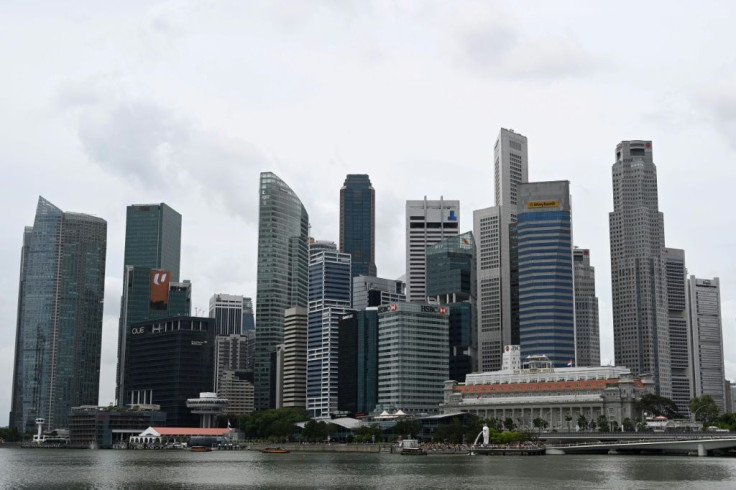Top Singapore Oil Trader Cooked Books For Years, Owes Banks Billions

KEY POINTS
- Hin Leong hid some $800 million in losses
- Hin Leong owes some $3.85 billion to 23 banks
- Singapore is one of the most important commodity trading centers in the world
Police in Singapore have commenced an investigation into the activities of oil trading firm Hin Leong Trading Private Ltd. on reports the firm hid some $800 million in losses over the years.
Hin Leong, one of the largest oil traders in the world, already owes some $3.85 billion to 23 banks, including JPMorgan Chase (JPM) and HSBC Holdings (HSBC), and is seeking protection from its lenders in Singapore court. ( HSBC is burdened with the biggest exposure at about $600 million).
Hin Leong, which was founded in 1963 by Chinese immigrant Lim Oon Kuin (better known as O.K. Lim), admitted in court documents that it hid its losses on Lim’s orders and that it also sold some of the millions of barrels of oil it had pledged as collateral to obtain loans from its banks.
Hin Leong is now seeking a six-month moratorium on its debts. Under Singaporean law, the court filing immediately protects Hin Leong from legal action by creditors for 30 days.
The Monetary Authority of Singapore, the city-state's financial regulator and central bank, is deliberating with Hin Leong's bank creditors.
Hin Leong’s façade began to crumble as crude oil prices started to crater last month. Banks, already unnerved by defaults at other commodity trading firms, got suspicious and began calling in its loans to Hin Leong.
The gap between the company's assets and its liabilities now amounts to $3.34 billion – suggesting banks might only recover 18 cents on the dollar on their loans.
Long notorious for his company’s secretive practices, Lim finally came clean.
"I had given instructions to the finance department to prepare the accounts without showing the losses and told them that I would be responsible if anything went wrong," Lim said in a court affidavit.
While Hin Leong's financial statements claimed a profit of $78 million in fiscal 2019, "in truth,” Lim confessed, the company "has not been making profits in the last few years.”
However, Lim did not explain why his firm had been incurring losses long before the current oil price crash.
Singapore, along with Geneva, London and Houston, is one of the most important commodity trading centers in the world, where billions are bet almost daily. Singapore itself is the world's largest hub for shipping fuel.
"Hin Leong is a company that likes risk," said Jorge Montepeque, a marketing executive who knows Lim. "But this time the risk became too big."
Hin Leong took advantage of Singapore’s geographic location among global shipping lanes and his access to China.
"Hin Leong was instrumental in helping the growth of Singapore as an oil hub and bunkering [supplying fuel to ships] location," said Jean-Francois Lambert, a commodity industry consultant.
But not even Hin Leong could have anticipated the catastrophic collapse in world oil prices this year – even worse, the company wasn’t not hedged against the price plunge. Indeed, Lim wrongly bet that China would quickly control the coronavirus spread and regain control of its economy, thereby pushing up oil demand and prices.
Hin Leong had bet big in the past, and sometimes lost big – but nothing to the extent witnessed in 2020.
In 1994, Lim’s son Evan told Bloomberg: "On one occasion we agreed to buy 800,000 barrels for delivery with a five-day pricing window. We got burned badly because the seller was in the market pushing prices up." (Evan Lim claimed in his recent own affidavit that he did not know of his father's actions or why the firm incurred such losses.)
Some associates believe the elder Lim will somehow find his way out of this disaster.
"A man of his mindset and character, I doubt whether he would sit and bury his head in the sand," said Robson Lee, a Singapore-based partner at the law firm of Gibson, Dunn & Crutcher LLP. "He will try to navigate his way out."
In fact, Lim told his creditors that he has already entered into talks with a Chinese firm to save his company.
© Copyright IBTimes 2025. All rights reserved.





















